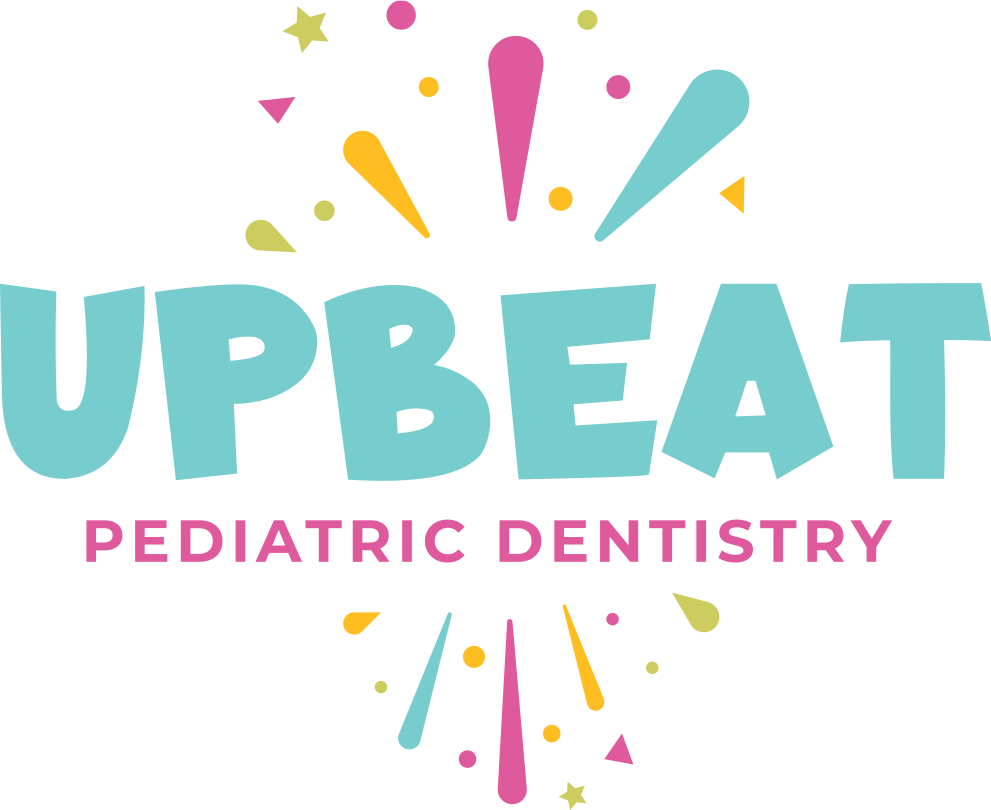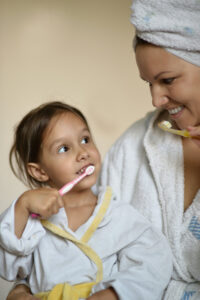A child’s smile is a treasure, and as parents, we want to ensure that it remains healthy and bright throughout their lives.
One key factor in maintaining good oral health is understanding the impact of oral habits on children’s teeth. From thumb-sucking to pacifier use and beyond, these habits can significantly influence the development of a child’s dentition and overall oral health.
In this blogpost, we will explore common oral habits in children, their effects, and what parents can do to promote a lifetime of healthy smiles.
Thumb-Sucking: Comforting but Concerning
Thumb-sucking is a natural self-soothing behavior in infants and young children. While it provides comfort, it can also have adverse effects on dental development if the habit persists beyond the toddler years. Prolonged thumb-sucking can lead to issues such as:
Misalignment: Thumb-sucking can cause misalignment of the front teeth, resulting in an overbite or an open bite.
Speech Development: Prolonged thumb-sucking may impact speech development, particularly the correct pronunciation of certain sounds.
Oral Hygiene: The constant presence of a thumb in the mouth can make it challenging to maintain good oral hygiene, increasing the risk of cavities and gum problems.
Emotional Impact: Peer pressure and teasing from other children can affect a child’s self-esteem if they continue thumb-sucking beyond a certain age.
Pacifiers: Friend or Foe?
Pacifiers serve as a source of comfort for many infants and are generally considered a safer alternative to thumb-sucking. However, their use should be monitored and limited as a child grows. The potential concerns with prolonged pacifier use include:
Dental Issues: Similar to thumb-sucking, excessive pacifier use can lead to dental problems, including misalignment of teeth and changes in the shape of the roof of the mouth.
Ear Infections: Prolonged pacifier use, especially at night, can increase the risk of ear infections in young children.
Speech Development: Excessive pacifier use can impact speech development, particularly if the child uses the pacifier extensively when attempting to communicate.
Nail-Biting and Chewing Habits
Some children develop habits like nail-biting or chewing on objects. These habits can have repercussions for oral health:
Tooth Damage: Chewing on hard objects or biting nails can lead to tooth damage, including chipping or cracking.
Oral Hygiene Challenges: These habits can introduce harmful bacteria into the mouth and may make it more challenging to maintain good oral hygiene.
Speech and Jaw Development: In some cases, persistent nail-biting or chewing habits can affect speech and jaw development.
Addressing Oral Habits
As parents, it’s essential to address oral habits proactively. Here are some strategies to consider:
Positive Reinforcement: Offer praise and rewards when your child abstains from the habit.
Distraction: Provide alternative activities or toys to keep their hands or mouths occupied.
Consult a Pediatric Dentist: If the habit persists or leads to dental issues, seek guidance from a pediatric dentist. They can offer tailored advice and, if necessary, recommend orthodontic treatment.
Set Realistic Goals: Gradual reduction of the habit may be more successful than attempting to stop it abruptly.
Scheduling Your Child’s Early Appointments
Oral habits are a common part of childhood, but their impact on dental health should not be underestimated.
While some habits naturally fade with time, others require intervention and guidance from parents and dental professionals. By understanding the effects of these habits and taking proactive steps, parents can help ensure that their children grow up with healthy, beautiful smiles.
At Upbeat Pediatric Dentistry, we are here to support you on this journey, providing expert guidance and care to promote optimal oral health in your child. Schedule an appointment with us to discuss any concerns about your child’s oral habits and to set them on the path to a lifetime of healthy smiles.







